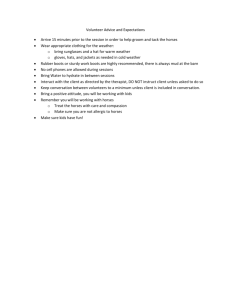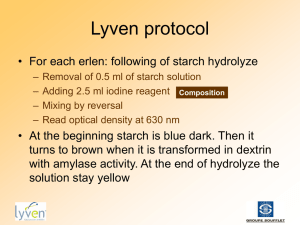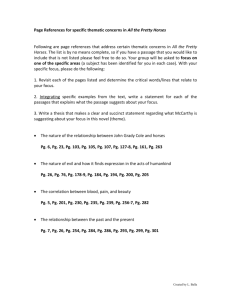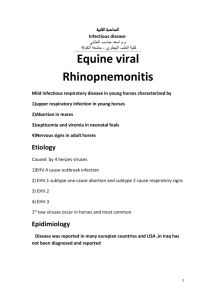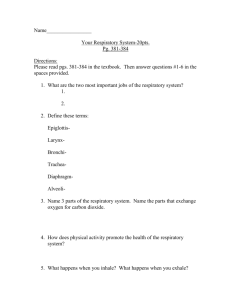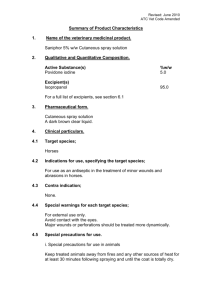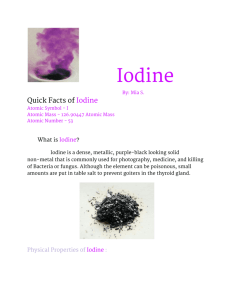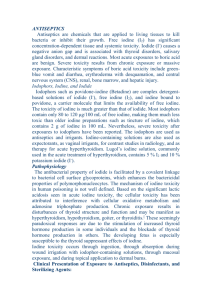respiratory disease and poor performance associated with
advertisement
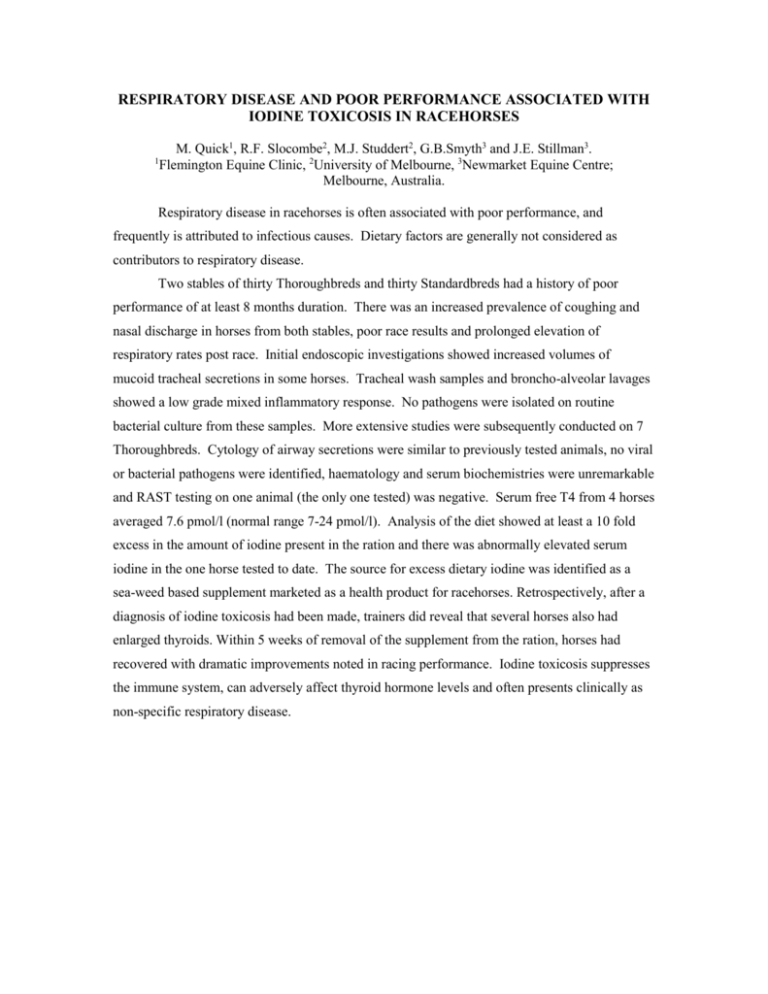
RESPIRATORY DISEASE AND POOR PERFORMANCE ASSOCIATED WITH IODINE TOXICOSIS IN RACEHORSES M. Quick1, R.F. Slocombe2, M.J. Studdert2, G.B.Smyth3 and J.E. Stillman3. Flemington Equine Clinic, 2University of Melbourne, 3Newmarket Equine Centre; Melbourne, Australia. 1 Respiratory disease in racehorses is often associated with poor performance, and frequently is attributed to infectious causes. Dietary factors are generally not considered as contributors to respiratory disease. Two stables of thirty Thoroughbreds and thirty Standardbreds had a history of poor performance of at least 8 months duration. There was an increased prevalence of coughing and nasal discharge in horses from both stables, poor race results and prolonged elevation of respiratory rates post race. Initial endoscopic investigations showed increased volumes of mucoid tracheal secretions in some horses. Tracheal wash samples and broncho-alveolar lavages showed a low grade mixed inflammatory response. No pathogens were isolated on routine bacterial culture from these samples. More extensive studies were subsequently conducted on 7 Thoroughbreds. Cytology of airway secretions were similar to previously tested animals, no viral or bacterial pathogens were identified, haematology and serum biochemistries were unremarkable and RAST testing on one animal (the only one tested) was negative. Serum free T4 from 4 horses averaged 7.6 pmol/l (normal range 7-24 pmol/l). Analysis of the diet showed at least a 10 fold excess in the amount of iodine present in the ration and there was abnormally elevated serum iodine in the one horse tested to date. The source for excess dietary iodine was identified as a sea-weed based supplement marketed as a health product for racehorses. Retrospectively, after a diagnosis of iodine toxicosis had been made, trainers did reveal that several horses also had enlarged thyroids. Within 5 weeks of removal of the supplement from the ration, horses had recovered with dramatic improvements noted in racing performance. Iodine toxicosis suppresses the immune system, can adversely affect thyroid hormone levels and often presents clinically as non-specific respiratory disease.

